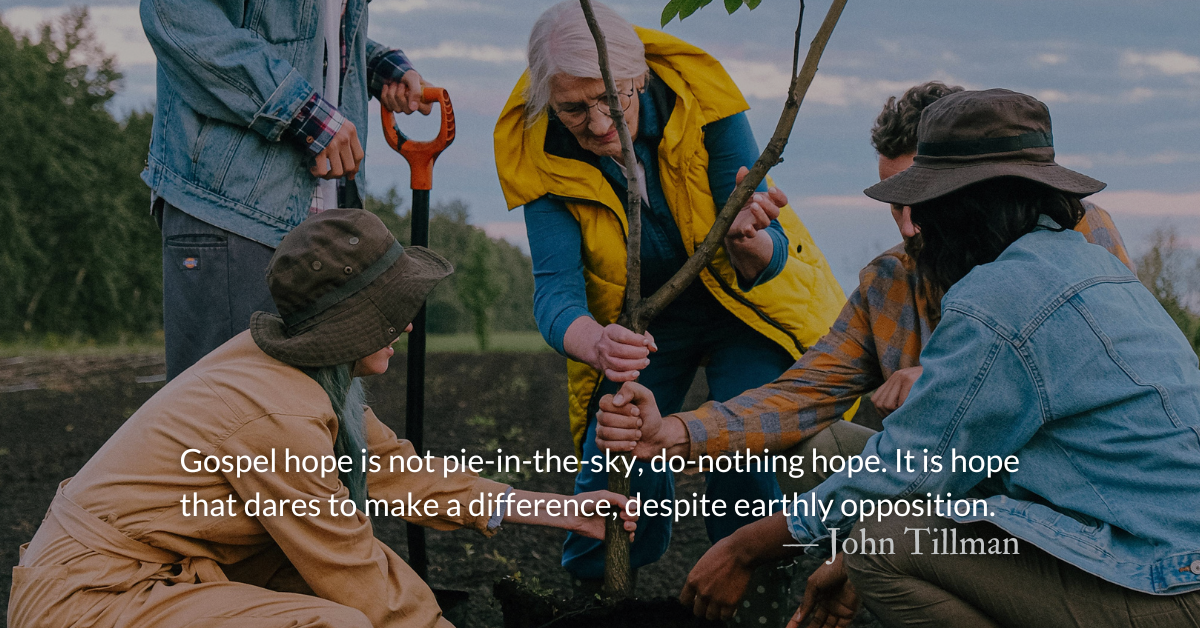Links for today’s readings:
Read: 2 Samuel 21 Listen: (4:34) Read: Psalms 11-12 Listen: (1:59)
Scripture Focus: Psalm 11
1 In the Lord I take refuge.
How then can you say to me:
“Flee like a bird to your mountain.
2 For look, the wicked bend their bows;
they set their arrows against the strings
to shoot from the shadows at the upright in heart.
3 When the foundations are being destroyed,
what can the righteous do?”
4 The Lord is in his holy temple;
the Lord is on his heavenly throne.
He observes everyone on earth;
his eyes examine them.
5 The Lord examines the righteous,
but the wicked, those who love violence,
he hates with a passion.
6 On the wicked he will rain
fiery coals and burning sulfur;
a scorching wind will be their lot.
7 For the Lord is righteous,
he loves justice;
the upright will see his face.
Reflection: Take Refuge in Hope
By John Tillman
David knew these poetic images in a raw and real, physical sense.
In the psalm, someone tells David to “flee like a bird to your mountain.” In the Asia Bible Commentary, Federico Villanueva notes the ostracization inherent in this advice. They say “flee to your mountain” as if David doesn’t belong where he is. Go away. You don’t belong here.
David knew what it was like to be a refugee fleeing to the mountains and wilderness. He knew the terrible power of wicked leaders attacking him. When David described being shot at, it was more than a metaphor. He knew the sound of arrows from the dark ripping through the air.
For David, and many who sang this psalm after him, violence was a physical reality, not merely a metaphysical parable. David also knew what it was like to stand up to unjust, unrighteous, wicked power.
My youthful fistfight-level dealings with violent bullies were tame compared to others’ experiences. But even those with no direct experience of violence can feel the hopelessness of David’s first three lines. When foundational things such as justice, compassion, empathy, and righteousness are attacked before our eyes, what can the righteous do?
Hopelessness can affect areas of our lives beyond the spiritual. We may hide or flee from problems with work, our health, our family conflicts, or our communities. Villanueva connects the hopelessness of verses 1-3 to the political hopelessness of some in his native country of the Philippines. The rich get richer, the poor get poorer, and those who can often flee the country. But if everyone flees, Villanueva asks, who will work for needed changes?
David imagines standing firm instead of fleeing—taking refuge in the Lord. Rejecting hopelessness, David focused not on the mountains but on the true temple of God in heaven. The help David sought would come from there.
No matter the seriousness of the situations we face, we share David’s source of hope. We can focus our mind and hopes on the same temple David did. Not one injustice will go unnoticed by God. Not one careless, callous word will go unheard by him. Not one victim’s tear will go unfelt by his finger wiping it away.
But gospel hope is not pie-in-the-sky, do-nothing hope. It is hope that dares to make a difference, despite earthly opposition. Take refuge in hope. Take action in righteousness. Be a blessing to others.
Divine Hours Prayer: The Request for Presence
For God alone my soul in silence waits; truly, my hope is in him. — Psalm 62.6
– Divine Hours prayers from The Divine Hours: Prayers for Summer
by Phyllis Tickle
Readers’ Choice is here!
#ReadersChoice is time for you to share favorite Park Forum posts from the year.
What post helped you better understand scripture?
https://forms.gle/aSD7X5psHqjSMtBFA
Read more: David’s First and Last Giants
In David’s first battle, he felled a giant. In his last, he fell before one. Both times, he praised God.


